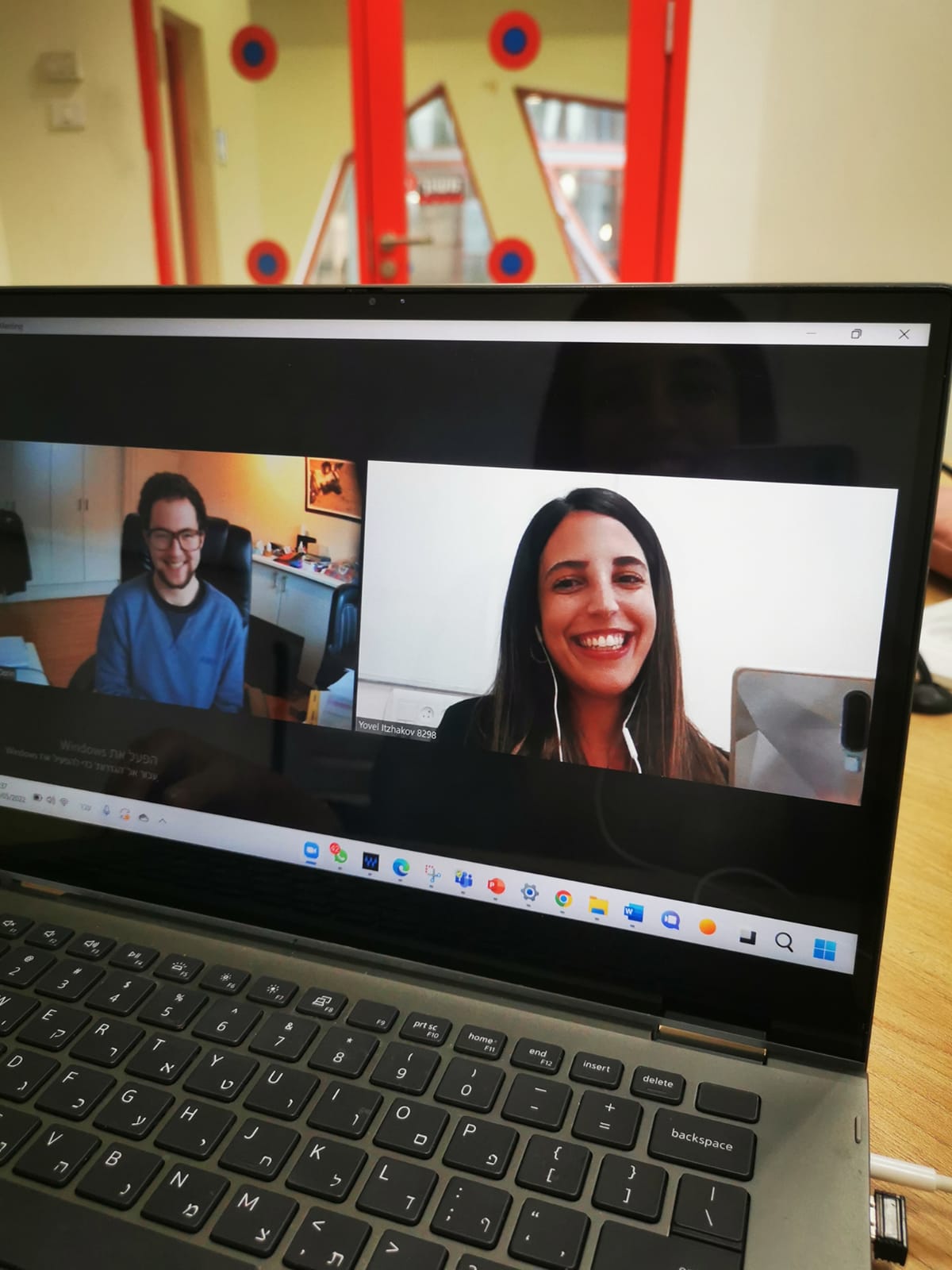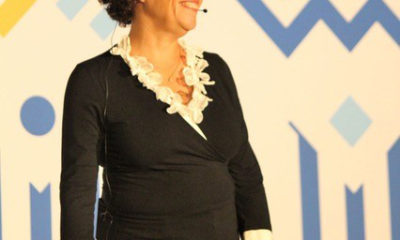
Lifestyle/Community

Modern “pen pal” programme connects SA and Israeli students
Many people might remember growing up with the joy of a pen pal. They may have even become life-long friends. In today’s digital age, letters have gone out the window, but the benefits of connecting with another young person remain timeless.
It’s one of the reasons that the Association of Americans and Canadians in Israel (AACI) has started a programme called Student Connect, which connects university students from America, Canada, and South Africa to students in Israel. They have one-on-one conversations to network and discuss topics such as Israel, Jewish identity, and antisemitism.
“We’ve noticed a large disconnect between Israel and the diaspora, and have chosen to recognise it by closing the gap amongst the young and upcoming generation,” says Bracha Singer, a South African student who has participated in the programme. She was so impressed with it, she’s now its recruitment officer. “It’s not a political or religious organisation and has no agenda other than being a platform for open dialogue,” Singer says.
Says project coordinator Orly Heiblum, “The ultimate goal is to address the huge disconnect between Israel and the diaspora by humanising the relationship between Israeli and diaspora students one conversation at a time. We want participants to think in new ways and to develop new perspectives about Jewish identity, Israel, antisemitism, and the desire to have an impact on their own Jewish communities.”
Seven South Africans have taken part in the programme since it began a year ago. One of them is Adam Osrin, from Cape Town. He attended United Herzlia Schools and is 24 years old. “I graduated last year with a BCom Honours in Strategic Brand Management from Vega Cape Town. I heard about the AACI programme from a friend. I decided to join as I love chatting with others and finding out about their experiences,” Osrin says.
Students get to know each other using the prompts provided. There is also an incentive of a $50 (R914) Amazon gift card for anyone who completes the programme.
“The experience was amazing as we spoke about topics that wouldn’t usually be spoken about if we saw each other for a cup of coffee,” says Osrin. “The Israeli I was partnered with was funny, great to chat to, and very friendly. She’s studying at the moment, majoring in economics. We’ve planned to meet up either when she comes to Cape Town or when I visit Israel.”
They found things they had in common as well as differences. “The similarities are that we’re both Orthodox, and we’re both very busy, either studying or working. Some differences are that she has been in the IDF [Israel Defense Forces] and I haven’t, and there was an age gap of about three years. She lives with her boyfriend, and I still live at home.”
Ultimately, he feels that “this programme is amazing, and I’ve learnt so much about myself and life in Israel, even though I’m so far away from the homeland of the Jewish people”.
Singer is 24 years old and attended Torah Academy. She’s now studying a Bachelor of Psychology at the South African College of Applied Psychology (SACAP). She’s also SAUJS (the South African Union of Jewish Students’) chairperson at SACAP.
She heard about the programme through SAUJS. “I found the concept appealing right from the start. I studied at the Hebrew University of Jerusalem a few years ago. I absolutely loved my experience, and wanted to re-live Israeli student life whichever way I could.”
She was matched with an Israeli student of a similar age. “It has been fun making a new friend across the globe,” she says. “Although it’s been only a few weeks, it feels like we’ve known each other for far longer. She’s about to start her Master’s degree, and I’ll be entering Honours next year. She’s very friendly, outgoing, and personable. This made engagement easy from the start.
“We’re both creative, sparking discussion around similar hobbies,” she says. “When asked about our values and fears, we were able to relate. In spite of us both having strong opinions and knowing what we stand for, we were able to find commonalities and leave room for interesting discussion.”
Singer says she’s definitely become more aware of life in Israel and student life specifically. “It was intriguing to understand current issues through the eyes of someone who lives it every day. Students from around the world should create a network and support system. There’s much to learn from one another, and it’s important to know that no Jewish student, regardless of where in the world they find themselves, is alone.
“The prompts for each session create a platform for getting to know each other on a deeper level,” says Singer. “There are also fun questions which allow for a healthy balance and the opportunity for unique, quirky conversation, which removes any awkward silences. I’m really looking forward to keeping up this friendship.”
Heiblum says they “have a full matrix” to evaluate the programme’s success, “within the framework of Jewish identity, minimising the disconnection of Jewish students with Israel, and becoming agents of change in Jewish communities”.
The first step is to fill out a registration form. “Once we get the application, we do the match. The first thing is to have one Israeli and one international participant. Then, we try to match according to similar fields of study, and if that’s not possible, according to similar interests or experiences.
“To date, all the matches have worked within the 13 ‘couples’ that finished the programmes,” she says. “We have open and constant communication with them, so if something isn’t working, we can solve this either by talking to them individually or changing the match.”
Heilbron emphasises that AACI Student Connect “isn’t a political or religious programme. We don’t directly give tools to do hasbara [public diplomacy in favour of Israel] or to fight BDS [the Boycott, Divestment, Sanctions organisation], we start one step before by encouraging them to explore their own position on these issues, put them in direct communication with an Israeli, get them to listen to their side of the story and ask questions, and make an Israeli friend. In that way, they’ll be more empowered to deal with those issues.”
“The South African Jewish community has a uniquely welcoming and friendly disposition,” says Singer. “Let’s use this virtue to close the gap between ourselves and the land we love. What better way to do that than through our youth?”
- Students can register at aaciconnect.org/contact-10 or send an email to projects@aaci.org.il











Anselimu Augusti Tarimo
February 9, 2025 at 8:28 am
This is awesome platform I was looking for.
Oh my God let me know how to be part of it.
I need to share my experiences skills and also learn from you nice ones.
I will be happier to be part